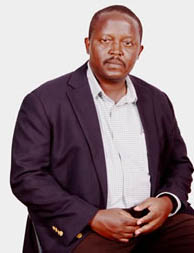American philanthropist Bill Gates recently made a bold prediction that there will be no poor countries worldwide by 2035. And he gave good reasons for that. But Christ, speaking long before him, had with equal boldness warned his disciples: “The poor you will always have with you.” True to his prophetic style, he gave no reasons. All of us no doubt wish that Gates’ prediction shall prove the more accurate one. Perhaps it will, but it will require hard work.
There are three categories of comforts that sweeten our experience of life, but the eradication of poverty from among the world’s peoples will require the enhancement of only two, the lack of which constitute the very substance of poverty: the comforts due to man by virtue of his humanity and that due to him by virtue of his citizenship. The comforts due to us by virtue of our humanity all revolve around the preservation of life. They include access to food and clean water, access to medicine, and access to good maternal care. On the other hand, the comforts due to us by virtue of our citizenship are access to security and access to justice for wrongs that interfere with our enjoyment of the basic comforts of humanity.
It would be the height of insensitivity and moral crudeness to think that these most basic of comforts should be earned purely by ability. Therefore our enjoyment of the basic comforts that go hand in hand with the fact of our humanity and citizenship should not be left entirely to individual abilities but should be fostered by government and philanthropic intervention in cases where people are too poor to pay their way to those comforts. In this regard, it would be a great boost to the struggle against poverty if more people donated to anti-poverty causes. The current fashion is to leave such magnanimity to a handful of billionaires and religious organizations. This will not do. More donations from more regular people, each giving according to their ability, will carry us further. But to draw them into the philanthropic circuit will require a major enlightenment drive.
Of course the most dependable way by which to guarantee the enjoyment of these comforts is by reliance on personal enterprise where the capacity for this exists. The capacity to prosper by personal enterprise in a natural environment is part of the inborn survival apparatus which nature invests all men with at birth. Unfortunately, over the course of history, the evolution of this apparatus did not keep pace with the evolution of the environment, and so its effectiveness waned progressively with the passage of the ages. While it was designed to operate in a milieu of natural laws, our survival apparatus now finds itself in the midst of disorienting man-made laws—in particular, stifling property laws. For example, under natural law a man may eat any food he comes across; but under man-made laws there are seas he cannot fish from, animals he cannot hunt, and trees whose fruits he may not pick. These artificial restrictions cripple the limbs of Mother Instinct, and we cannot therefore ride on her back to the comforts we seek. Consequently, our survival instincts must be supported by education in order to enable them lead us through the sprawling maze of un-natural laws to those comforts.
The fact that these laws are made by governments imposes on all governments a moral responsibility to provide their subjects with the basic formal education that can ally with their instincts to give them a livelihood. They must also promote the free movement of cultures and peoples, which is the main mechanism by which the masses gain the informal education that has proved critical to the creation and sustenance of livelihoods globally. When we consider the historical movements of people that were stimulated by trade, strife, or even base motivations like colonialism, we realize that whenever human populations are relieved of the burden of laws and ignorance which pin them to particular locations, they tend to redistribute themselves over the face of the earth in such a way as to optimize their economic situation. In their movements across the world, they carry their cultures with them thereby setting the stage for a confluence of cultures wherever their travels take them. Upon their cultures coming into contact with other cultures, the superior economic culture among them displaces the inferior ones, and in this way the intellectual tools required to create a superior livelihood are spread to new hands and new lands. Not only that, but besides aiding the diffusion of empowering culture, these human movements directed as they are by the impulse to enhance returns to labour and enterprise also act against poverty by ensuring that labour and enterprise meet their most rewarding employments. We witnessed these effects in the European colonization of Africa, Asia, and the Americas, and we now witness them in the influx of Indian and Chinese traders to Africa and of Western companies into China. The free movement of peoples and cultures has brought more people out of poverty than any single anti-poverty economic measure.
Clearly, the biggest role in the creation of a poverty-free world by 2035 lies with governments. They must support social programmes that provide their subjects with the comforts that their humanity and citizenship demand and the basic education that enhances their capacity to prosper by personal enterprise. But the rest of us also have important roles to play by ascending to philanthropic orbits to support the anti-poverty crusade besides lobbying for laws which make victory more certain. Then the sweet day will someday come when the faithful can sing: “The poor you will always have with you—up to 2035, up to 2035!”

